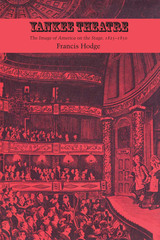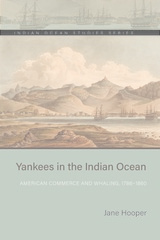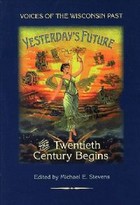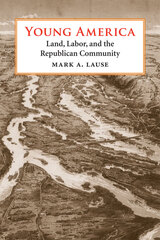4 start with Y start with Y

The famous "Stage Yankees," with their eccentric New England dialect comedy, entertained audiences from Boston to New Orleans, from New York to London in the years between 1825 and 1850. They provided the creative energy for the development of an American-type character in early plays of native authorship. This book examines the full range of their theatre activity, not only as actors, but also as playmakers, and re-evaluates their contribution to the growth of the American stage.
Yankee theatre was not an oddity, a passing fad, or an accident of entertainment; it was an honest exploitation of the materials of American life for an audience in search of its own identification. The delineation of the American character—a full-length realistic portrait in the context of stage comedy—was its projected goal; and though not the only method for such delineation, the theatre form was the most popular and extensive way of disseminating the American image.
The Yankee actors openly borrowed from what literary sources were available to them, but because of their special position as actors, who were required to give flesh-and-blood imitations of people for the believable acceptance of others viewing the same people about them, they were forced to draw extensively on their actors' imaginations and to present the American as they saw him. If the image was too often an external one, it still revealed the Yankee as a hardy individual whose independence was a primary assumption; as a bargainer, whose techniques were more clever than England's sharpest penny-pincher; as a country person, more intelligent, sharper and keener in dealings than the city-bred type; as an American freewheeler who always landed on top, not out of naive honesty but out of a simple perception of other human beings and their gullibility.
Much new evidence in this study is based on London productions, where the view of English audiences and critics was sharply focused on what Americans thought about themselves and the new culture of democracy emerging around them. The shift from America, the borrower, to America, the original doer, can be clearly seen in this stager activity.
Yankee theatre, then, is an epitome of the emerging American after the Second War for Independence. Emerging nationalism meant emerging national definition. Yankee theatre thus led to the first cohesive body of American plays, the first American actors seen in London, and to a new realistic interpretation of the American in the "character" plays of the 1870s and 1880s.

The history of US imperialism remains incomplete without this consideration of long-overlooked nineteenth-century American commercial and whaling ventures in the Indian Ocean.
Yankees in the Indian Ocean shows how nineteenth-century American merchant and whaler activity in the Indian Ocean shaped the imperial future of the United States, influenced the region’s commerce, encouraged illegal slaving, and contributed to environmental degradation. For a brief time, Americans outnumbered other Western visitors to Mauritius, Madagascar, Zanzibar, and the East African littoral. In a relentless search for commodities and provisions, American whaleships landed at islands throughout the ocean and stripped them of resources. Yet Americans failed to develop a permanent foothold in the region and operated instead from a position of weakness relative to other major colonizing powers, thus discouraging the development of American imperial holdings there.
The history of American concerns in the Indian Ocean world remains largely unwritten. Scholars who focus on the region have mostly ignored American involvement, despite arguments for the ocean’s importance in powering global connections during the late eighteenth and early nineteenth centuries. Historians of the United States likewise have failed to examine the western Indian Ocean because of a preoccupation with US interests in Asia and the Pacific. Failing to understand the scale of American trade in the Indian Ocean has led to a fixation on European commercial strength to the exclusion of other maritime networks. Instead, this book reveals how the people of Madagascar and East Africa helped the United States briefly dominate commerce and whaling.
This book investigates how and why Americans were drawn to the western Indian Ocean years before the United States established a formal overseas empire in the late nineteenth century. Ship logs, sailor journals, and travel narratives reveal how American men transformed foreign land- and seascapes into knowable spaces that confirmed American conceptions of people and natural resources; these sources also provide insight into the complex social and ecological worlds of the Indian Ocean during this critical time.


Rooting the movement in contemporary economic structures and social ideology, Young America examines this urban and working-class "agrarianism," demonstrating how the political preoccupations of this movement transformed socialism by drawing its adherents from communitarian preoccupations into political action. The alliance of the NRA's land reformers and radical abolitionists led unprecedented numbers to petition Congress and established the foundations of what became the new Republican Party, promising "Free Soil, Free Labor, Free Men."
READERS
Browse our collection.
PUBLISHERS
See BiblioVault's publisher services.
STUDENT SERVICES
Files for college accessibility offices.
UChicago Accessibility Resources
home | accessibility | search | about | contact us
BiblioVault ® 2001 - 2024
The University of Chicago Press









